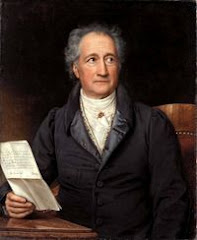Martin Luther is regarded by many as a visionary whose courage was matched only by his extreme goodness, a man who selflessly risked all for the good of the common man and the glorification of god-in short, a hero. This-in my opinion- is one of the greatest misconceptions that still (sadly) lives on in western society. To begin with, the idea that Luther was the sole individual seeking reform in the Catholic Church is completely false. Men such as John Wycliffe and Jan Hus preceded Luther in their work, and reformers such as the only difference is that Luther built upon their philosophy and translated the Latin into German (not overly difficult for a GERMAN monk). The invention and popularization of the printing press would have made it easy for this work to be dispersed throughout Germany (with Luther's name attached of course) giving the average Johann Doe the illusion that Luther had engineered these revolutionary ideas all on his own. The image of Luther as a fearless warrior for the common man is even less true than the idea of Luther as a visionary. Luther supported the peasant class only as long as he (like the nobles) could ride on their backs, securing protection and fostering support. During the Peasant's War in which attrocities were committed by Peasants and Nobles alike, Luther sided with the Nobles, urging the peasants to lay down their arms and "render unto Caesar what is Caesar's," basically, to let the Nobles impose excessive taxes and generally take advantage of them (which european peasantry would do for a couple more centuries). Why did Luther side with the nobles? Essentially because he saw this side as his best bet for being able to establish his church-everyone likes to back a winner. Finally, the belief that Luther was a truly good man is the most agregious misconception of all. The reality is the Martin Luther was a RAVING anti-semite whose influence and scathing treatises would be tinder enough to fuel the fires of hatredthrough the Holocaust. Luther's novel "On the Jews and Their Lies" was being penned at around the same time absurd rumors were taking hold in europe that the plague was somehow caused by the Jews. Even the all too corrupt pope called beliefs of this sort the work of the devil. In short, Luther's work and works led to countless bloody wars, schisms and purges throughout western europe between protestants and catholics, Luther helped set back the pursuit of class equality by a centuries, and when Jews did not respond to Luther's overtures, he released violent anti-semitism throughout all of Germany where he was so popular. The end result of this anti-semitism was the Holocaust, during which time thousands of Lutherans-leaders and followers alike- would quote their patriarch in advocating the yellow star and the concentration camps, and during which time thousands of copies of Luther's works would be exchanged. Why did he do all of these thing? To see his church blossom his bible read throughout all Germany, and his name in the history books. The great injustice is that he succeeded, because this Sunday nearly 70 million believers will attend a Lutheran church, the foundation of which is blood and bones.
Matt Godwin
Friday, February 15, 2008
Subscribe to:
Post Comments (Atom)







.jpeg)


1 comment:
Luther stood with the noble because everyone lived in that special period needs a protection. This something the nobles could offer Luther but the peasants not. I think he benefited from standing by the noble’s side a lot. He got power and supports. As far as I am concerned, and according to the reading materials we discussed in class, Luther is a really prayerful man and he made his efforts to avoid wars. One the other hand, I would rather to say that Luther was praised as a hero by others than that he become a hero by himself. He never said he was a hero himself. In his mind, the only powerful creature in the world is God. And meanwhile, Martin Luther did provided some useful achievements during that time and history always welcome new ideas. He translated the Bible and wrote the 95 Theses, which helped to spread the idea of the new religion greatly. Without Luther, the new ideas, which lighted up the reformation, would stayed with John Wycliffe and Jan Hus and probably remained unknown for some longer time.
Qingqing Wang
Post a Comment